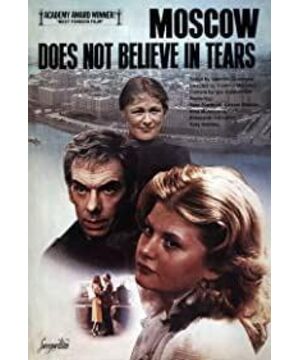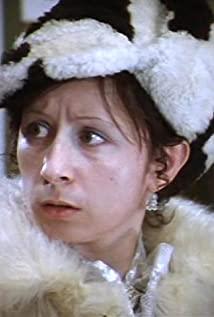From today's point of view, it seems that the three women who are in love with the sisters in the film all live their lives based on whether they can find a man and what kind of man they can find. Katerina, the most independent, sober, and the most successful in her career The ideal partner he finally found was an undisguised machismo, which is quite unimaginable. But perhaps not just looking at the society of the early 1980s with today's eyes and pointing out its shatters, which may miss some interesting points. (For example, sometimes watching Italian or Japanese movies in the 1950s and 1960s, there will be scenes where men slap women at every turn, and it will feel uncomfortable when watching... But you still have to try your best to finish the movie? Because the movie still There is something else) I think it is very interesting that this film touches on the topic of the status of women in socialist countries.
On the one hand, the film's representation of male elites in socialist countries seems to be little different from the well-known male elites in the Western world. The heroine's predecessor is the most typical example: a photographer working in a TV station, with a wealthy family background, good at rhetoric, and relying on his job to invite women to live on TV to please each other... More than ten years later, he said to the heroine's daughter The words she said were exactly the same as the words she said to the heroine more than ten years ago... On the other hand, the director of the film completely used Katerina's performance in working conditions when she was a skilled worker or when she became a factory manager. Gender perspective: There is no difference between female workers and male workers in the factory. The worker Katerina has excellent technical skills, and the foreman does not make any gendered comments on this; the factory manager Katerina walks through the workshop with several male and female deputies. The busy figure, the neatness and neatness of giving orders to subordinates in a conference call in the office, does not have any gendered characteristics. There is no description in the film of how Katerina raised her daughter alone, what difficulties and struggles she had during the period, how she brought her baby and learned and then gradually became the factory manager. By the time her daughter has entered puberty, it seems that being a single mother in a socialist country is not something worth mentioning. These things are not common in Western movies. Which of the emphasis/ignore here is the influence of ideology, and which is the portrayal of the social reality at that time? When the Oscars awarded this film the Best Foreign Language Film Award in 1981 (it was of course a manifestation of "Hollywood's independence from American politics" after the United States boycotted the Moscow Olympics in 1980 and Ronald Reagan came to power in 1981), Hollywood movies What is the status of the presentation of women's issues? Well, here are some questions.
View more about Moscow Does Not Believe in Tears reviews








